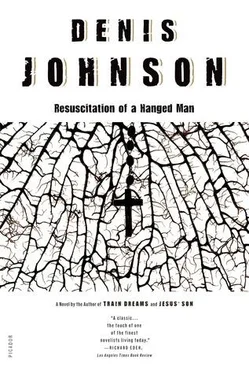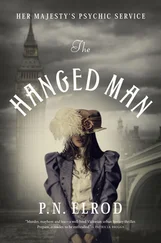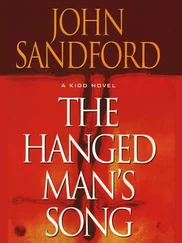English stood and watched for several minutes, seeing nothing, while people in white smocks went to and fro around the stretcher and came and went from the trauma room, speaking in low, urgent voices. When he felt the strength returning to his arms and legs, English left and went back to the clerk’s cubicle, nodding absently to an ambulance attendant — the one just pushing the stretcher — who loitered in the hallway now, holding a cup of coffee in one hand and in the other Ray Sands’s set of false teeth.
The clerk had his intercom working. He talked into it and the telephone both at once. “Anybody you need?” he asked the intercom, and the intercom answered, “Anesthesia!” “Anesthesiologist,” he said into the telephone.
By this time there were medical people all over the place, many of them without a purpose, it seemed. They spilled out of the trauma room and into the hallway, where confused patients tried to sit up in their mislocated gurneys and demand an explanation. A nurse rushed out of the trauma room just as a priest was rushing into it, his black garb billowing behind him. They banged into each other. The girl was thrown against the wall. She recovered, started off again, abruptly halted, wheeled, and hurried back through the doors behind the priest. English and the clerk, leaning together close to the intercom, listened to the clunking sounds of a machine giving Ray Sands’s heart stiff electric jolts; and then they heard the steady whine the EKG emitted when it was taking a flat reading. There were so many similar sounds, the dentist’s drill, vacuum cleaners, the high test tones of radio stations; and in his weightlessness and complete openness to all sensation English understood deeply, for an instant, that this was music. Over the intercom came a girl’s breathless voice asking, “What medication? I forgot, I forgot—” “Couple of aspirin, and call me in the morning,” one of the doctors said, and those gathered around the corpse broke into laughter over the priest’s rapid monotone and the music of the EKG. The clerk shut down the intercom. “All over,” he said into the phone, and put away the receiver.
Looking up, English saw Grace Sands standing on the other side of the glass, next to a policeman. She was crying out, and her face was as she’d described her husband’s: like a beet, swollen and shiny. She seemed not to have heard the clerk’s pronouncement. She’d mistaken him for a doctor. “He gotta make it, please, he got ta — Doctor, do something!” She broke loose of the comforting and restraining hand of the policeman, who stood behind her with the flaps of his winter cap turned up and flopping like a mongrel’s ears and making him look even more at a loss, in the face of a widow’s torment, than he probably already was. “Make him well, please, you gotta, you gotta!” Her features were so changed by panic that English wouldn’t have known her except by the mist of white hair around her head, and also by her apron, which he recognized from their New Year’s Eve dinner together, the back-yard barbecuer’s smock with lettering on it: When It’s Smokin’ It’s Cookin’ and When It’s Black It’s Done. The clerk seemed to read this slogan carefully, and then slid aside the glass between them and offered her a box of Kleenex. “Oh, thank you, Doctor,” she whispered, “thank you, thank you,” staring at the Kleenex and never touching it.
A real doctor, a tired old man, came into the waiting room. Grace saw him and clamped her lips together over her sobs. Wordlessly, he took her elbow with one hand while giving the policeman’s shoulder a friendly squeeze with the other, and he guided her from the room and into the hallway to talk to the priest. The clerk opened and closed one file drawer after another. “Where are those death certificates?” he said.
The phone rang and the clerk stopped his search to answer. “They’re all done,” he said. “They’ll be coming back in a minute.” English felt thirsty, and then suddenly saliva flooded his mouth and he thought he’d be sick. “Deceased,” the clerk said, and hung up the phone. Out in the hallway, the new widow started screaming at the priest and the doctor.
English caught sight of a beautiful woman with long black hair. Then he saw it was Leanna, looking as if she belonged right here in the middle of all this. She seemed to know exactly what she was doing, but she wasn’t doing anything except standing by the water cooler with her arms crossed before her.
The nurse called Helen came in and sat down heavily in the chair beside the clerk’s desk, sticking her rubber-soled shoes out in front of her and chewing viciously on a lollipop. “Got rid of half our patients,” she said, and English noticed for the first time that many of the injured, even untreated ones, were gone or were leaving, no longer impressed, maybe, with their own contusions and abrasions. The clerk, standing beside the filing cabinet, began to tremble. English could see it plainly. Helen was also shaking as she showed the clerk where to find a death certificate, and English noticed that she chewed up and swallowed her lollipop stick. English lit a cigarette and inhaled deeply. When he turned to rest it in the ashtray, he found two others, both his, already burning there. The widow sobbed loudly in the hallway, while the priest spoke reassuring phrases. Helen went back into the trauma room to cope with the patients whose ordeals had been interrupted. The hospital was quiet again. English wondered if a human soul drifted along these corridors now, but he found — much to his alarm, to his great anguish — that he doubted it.
The clerk’s tiny office seemed to be the crossing point of any number of paths in this hospital. Within the space of a few minutes, doctors, custodians, orderlies on break appeared one by one and asked, “How’d it go?” and were told, “Deceased,” and wandered off. Leanna slept softly in one of the waiting room’s cheap plastic chairs. English stayed around, thinking he should talk to Grace Sands, but all he was able to say was “Grace—” as she passed by, flanked by the policeman and the priest, and then she was gone.
The automatic breath and rattle and thump of the entrance’s sliding doors repeated at intervals, letting out the people who’d been a part of this death, until the clerk’s cubicle and the rooms around it were as still as the moment before a concert. But English stayed where he was, half sitting on the clerk’s desk, because he knew he couldn’t handle a car. “Taking a break?” the clerk asked him.
English nodded.
“That guy looked old for a detective,” the clerk said. He glanced at what must have been Sands’s chart. “Born 1915.”
“He’s retired,” English said. “Was. Was retired.”
Helen came and leaned in the doorway, looking jolly. “Had enough excitement tonight, Frank?” she asked the clerk.
The clerk looked at the clock on the wall. “Wow. Only thirty-two minutes to go.”
The phone rang. The sound echoed all over the building, it seemed. It woke Leanna, the only person left in the waiting room. English was going to say something to her, anything, but she looked around and then closed her eyes again.
“Everything went real smooth,” Helen was saying on the phone. “Deceased,” she said. “Deceased. I think he was basically DOA.” She was looking at Sands’s chart. “It was his fourth coronary.” English was more than surprised to hear this: he felt betrayed.
“The mortuary people oughta be around any time now,” Helen told the clerk. “Help me get this man’s clothes off, would you?”
“Me?” Frank said.
“Everybody’s gone. Sue’s at the snack bar. Andy’s down at CIC. Come on, it goes with the territory.”
Читать дальше












